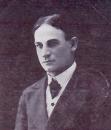When Panimbla Station in the Australian outback becomes the target of a gang of cattle duffers the owner, Stephen Maitland, is unaware that his manager, Sydney Winton, is in league with the gang. Unable to get men to work for him after two of his stockmen are killed in a raid, Maitland's situation looks grim. Things begin to turn around however through the plucky resolve of his daughter Mona (aided by the often hilariously funny Joe Lachlan), who suspects Winton of being involved in the cattle stealing. With the arrival of Dave Goulburn, a stranger who comes 'per boot off the pad' and in search of a job, Mona finally finds an ally ready to take on Winton and his cronies. The situation becomes charged with danger when the cattle duffers' leader, Ironbark Jim, recognises Goulburn as the man who smashed up a gang he had previously ridden with. He then puts into action a plan to kill the station's new boundary rider. This leads to a fight between the two men (at the Sloping Rock) and naturally results in the hero's victory and blossoming romance with the heroine. Reporting on the melodrama's final acts the Age theatre critic writes : 'Deeds of recklessness, deeds of courage and deeds of sentiment follow on rapidly and keep the attention of the audience riveted on scenes enacted amidst surroundings of the most realistic description' (3 May 1909, p11).
The Argus was similarly impressed by The Man from Outback. 'Knowing the patrons of the King's Theatre by, and their love of theatrical excitement,' writes the paper's theatre critic, ' the authors have "forced the note" to its topmost pitch, and given them an orgy of love, revenge, heroism, cowardice, hate and degradation. Comic turns and interesting work of cleverly trained horses and dogs adds a piquant flavouring that roused to enthusiasm the great heart of the King's audience.' Regarding the characters of the play the same critic suggests that although they 'have crept out of the many bush ballads and prose sketches which often have given competent expression to Australian character, humanity and drama, [their] transference to the stage presents obstacles as yet too formidable for their successful materialising, and the personages are little more than picturesque mouthpieces for the authors' ideas' (3 May 1909, p9).
The synopsis of scenery reads : Act 1. Sc 1. - The Muster Camp at Panimbla Station ; Sc 2. Outside the Store at Panimbla ; Sc 3. The Homestead. Act 2 Sc 1. The Boundary Hut ; Sc 2. The Track to the Haunted Bend ; Sc 3. The Haunted Bend. Act 3 Sc 1. Outside the Boundary Hut (Dave rescued from the burning hut by his horse and dog) ; Sc 2. A Room at Panimbla ; Sc 3. The Homestead Track ; Sc 4. The Sloping Rock (Saved by the Stockwhip). Act 4 Sc 1. Never Never's Humpty ; Sc 2. A Room at the Homestead ; Sc 3. The Homestead Track ; Sc 4. The Homestead.
The Argus review indicates that almost every scene bore the hallmark of the bush. 'An immense amount of local detail runs through the four acts,' writes the critic, 'including an aboriginal's burial place up a big gum tree, native fire-making and pretty well every bit of bush slang that could be pressed into service' (3 May 1909, p9).

